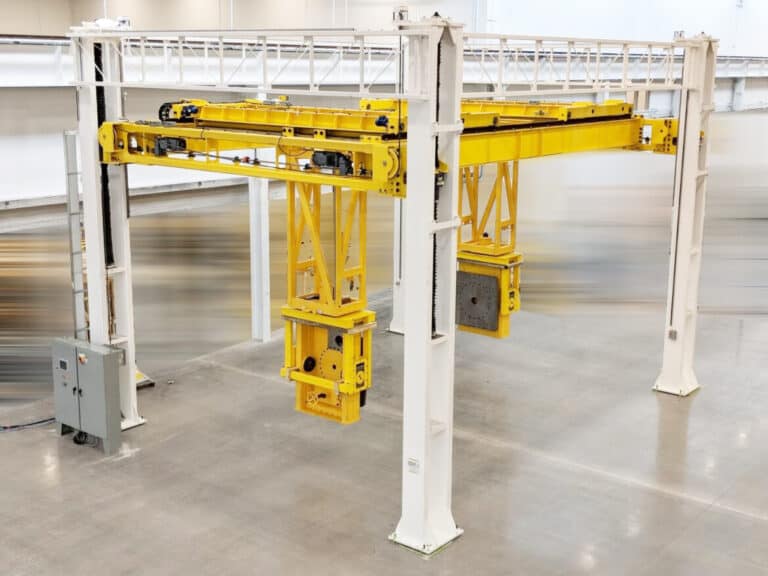Comprehending the Inclusions of moving and Freight Forwarding on the planet of Worldwide and residential Delivery
Steering with the intricacies of moving and Freight forwarding can be tough. Both processes entail unique treatments and needs that are essential for effective transport. Understanding the distinctions in logistics, documents, and risk administration is crucial for individuals and organizations alike. This understanding can significantly influence the efficiency and safety and security of shipments. Many are uninformed of the particular parts that influence the general experience and end results. What aspects should one consider to ensure a smooth changeover?
The Fundamentals of moving and Freight Forwarding
moving and Freight forwarding are essential elements of the international logistics industry. They help with the transfer of goods and personal items across global and domestic borders. moving largely entails the moving of people or family members, incorporating property and industrial requirements. It normally consists of packing, packing, carrying, and unloading things at the location. On the other hand, Freight forwarding is concentrated on the shipment of products, frequently in bulk, using various transport modes, such as air, sea, or land.Freight forwarders act as middlemans, working with logistics to assure prompt delivery while maneuvering through complicated guidelines and customizeds treatments. Both processes require careful planning, organization, and interaction to ensure efficiency and minimize disturbances. Comprehending these fundamentals is crucial for any individual included in logistics, as they lay the groundwork for advanced aspects of shipping and transport management.
Secret Parts of Freight Forwarding Solutions
Freight forwarding services include numerous vital components that ensure smooth transportation of products. Key duties of Freight forwarders include handling logistics, coordinating shipments, and managing personalizeds clearance. Furthermore, understanding crucial delivery paperwork is crucial for compliance and effective movement of cargo.
Freight Forwarder Responsibilities
A reliable Freight forwarder plays a necessary function in working with the transportation of items, ensuring that shipments are managed efficiently and in compliance with guidelines. Their obligations include various key jobs, consisting of choosing excellent transport paths, working out Freight prices, and handling logistics. They work as intermediaries in between service providers and shippers, guaranteeing that cargo is properly packaged and identified for safe transportation. Furthermore, Freight forwarders track deliveries, offering updates to clients regarding the condition and anticipated shipment times. They additionally analyze and take care of threats connected with transportation, suggesting insurance coverage choices as needed. By assisting in interaction and documents, Freight forwarders simplify the delivery process, decreasing potential delays and enhancing overall supply chain effectiveness.
Shipping Documentation Essentials

Understanding Customizeds Clearance and Paperwork
Accurate documents is important in the customizeds clearance procedure, as it ensures conformity with numerous regulations. A summary of customizeds guidelines highlights the intricacies encountered by carriers and Freight forwarders. Usual clearance obstacles can substantially influence delivery timelines and expenses, making understanding this element essential for reliable logistics.
Value of Accurate Documentation
Guiding with the complexities of international delivery requires a keen understanding of customs clearance and the important function of documentation. Precise documents is important for making certain that shipments follow regulations and reach their locations right away. Effectively prepared papers, consisting of bills of lading, industrial invoices, and packing checklists, promote smooth interactions with custom-mades authorities. Mistakes can lead to shipment delays, fines, or perhaps confiscation of items. In addition, thorough documents aids in tracking deliveries and solving conflicts. Consequently, organizations participated in moving and Freight forwarding should focus on careful paperwork practices to navigate the intricate landscape of worldwide shipping successfully. This persistance not just streamlines procedures yet likewise boosts customer contentment by ensuring prompt delivery.
Customizeds Regulations Summary
Guiding custom-mades laws is a vital aspect of international profession that straight affects the success of moving and Freight forwarding operations. Reliable personalizeds clearance requires an understanding of various regulations, consisting of tolls, tasks, and import/export restrictions. Exact paperwork is vital, as it assures conformity with lawful requirements and assists in the efficient motion of goods throughout boundaries. Key papers commonly consist of commercial billings, packaging lists, and bills of lading, which offer comprehensive details concerning the delivery. In addition, customs brokers play a vital function in guiding complicated guidelines, serving as intermediaries in between carriers and custom-mades authorities. By preserving complete understanding of custom-mades processes, services can substantially minimize hold-ups and reduce prices related to international shipping.
Usual Clearance Challenges
Countless challenges can arise throughout the customs clearance procedure, often making complex the activity of items throughout boundaries. One considerable issue is inadequate paperwork, which can cause hold-ups and charges. Importers and merchants must assure all needed documentation, such as billings, packing lists, and certificates of origin, is total and accurate. Additionally, inconsistencies in evaluation can cause examination from customs authorities, resulting in added responsibilities or inspections. Language barriers might likewise pose obstacles, as miscommunication can cause misconceptions relating to laws. Moreover, modifications in customs guidelines can develop confusion, requiring consistent watchfulness by carriers. Eventually, getting rid of these clearance tests requires thorough preparation and a clear understanding of custom-mades requirements to facilitate read more smooth global transactions.
Packaging and Labeling Demands
Although often neglected, packaging and labeling needs play a vital duty in the delivery procedure, guaranteeing that goods are shielded and conveniently identifiable throughout their journey. Proper packaging safeguards items from damages throughout transit, while also helping with effective handling and storage. Using appropriate materials, such as bubble wrap, foam, or tough boxes, can prevent breakage and loss.Labeling is equally important. Exact and clear tags convey crucial information, including the destination, handling directions, and materials. Tags should abide by laws certain to international and residential shipping, which might consist of dangerous products identification or personalizeds declarations.Moreover, standardized labeling methods streamline the monitoring process and improve general logistics efficiency. By sticking to packaging and labeling demands, businesses lessen the threat of hold-ups, damages, or misdelivery. Inevitably, these practices add greatly to the success of moving and Freight forwarding procedures, guaranteeing a smooth delivery experience for all parties involved
Tracking Deliveries: Value and Methods
Efficient product packaging and labeling set the structure for successful delivery administration, but tracking shipments is similarly necessary in the delivery process. Shipment monitoring supplies real-time exposure, which assists customers and businesses keep an eye on the progress of their products. This openness enhances client satisfaction, considering that clients can stay educated regarding distribution timelines and any kind of possible delays.Several techniques assist in efficient monitoring. Barcode scanning is a common strategy, using distinct identifiers to monitor plans throughout their trip. In addition, general practitioner technology enables specific area monitoring, enabling timely updates and boosted logistics management. Several delivery business currently offer electronic systems and mobile applications that give customers with easy access to tracking information.The relevance of delivery monitoring can not be overstated; it reduces the danger of lost or harmed products, improves functional performance, and fosters trust in between receivers and carriers. Integrating effective monitoring approaches is essential for effective residential and international shipping procedures.
Insurance Options for Your Item

Safeguarding insurance for items in transportation is an important factor to consider for individuals and businesses alike. Insurance policy choices differ based upon the kind of shipment, value of items, and particular risks involved. Usual kinds include copyright responsibility, which covers loss or damages while en route, and full-value insurance, providing substantial protection for the total value of the goods.Shippers may additionally think about marine insurance for global shipments, shielding versus threats connected with sea transportation. It is vital to assess the certain demands of the delivery and review the terms and conditions of any policy.Furthermore, recognizing exclusions and restrictions is essential to prevent prospective spaces in insurance coverage. Shippers need to engage with insurance policy specialists to discover customized remedies that fit their unique scenarios. Ultimately, purchasing the ideal insurance policy can reduce monetary risks and provide satisfaction during the shipping procedure.
Choosing the Right moving and Freight Forwarding Solution
When choosing a relocating and Freight forwarding service, it is essential for individuals and companies to meticulously examine their details needs and concerns. Factors such as the quantity of items, destination, and timeline play a significant duty in this decision-making process. Looking into various suppliers is advisable; comparing their services, pricing, and customer reviews can disclose useful insights.Additionally, it is required to think about the experience and experience of the service company in managing particular kinds of freight, particularly for international deliveries that might include customs clearance. Openness in pricing, consisting of any kind of surprise costs, ought to additionally be scrutinized.Furthermore, reviewing the level of consumer assistance supplied is essential, as timely interaction can alleviate issues during transit (shipping overseas). Ultimately, confirming the availability of insurance choices guarantees that items are secured throughout the delivery process. By taking these steps, individuals and services can make informed selections that align with their logistics requirements
Frequently Asked Concerns
What Types of Product Can Be Shipped Worldwide?

Just How Do Delivery Prices Differ Between Various Service Providers?
Shipping prices vary substantially in between providers because of factors such as solution rate, cargo kind, range, and extra solutions offered. Each service provider's prices model reflects these variables, influencing total shipping costs for consumers.
Can I Ship Hazardous Products or Perishables?
Shipping harmful materials and perishables goes through stringent regulations. Carriers frequently need details packaging, labeling, and documents. Carriers must ensure conformity with international and regional regulations to avoid charges and ensure risk-free transportation.
What Should I Do if My Delivery Is Delayed?
When confronted with a delivery delay, one ought to first call the service provider for updates. Assess any type of alerts got, assess different services, and maintain all events notified concerning the scenario to minimize interruptions.
Exist Weight Purview for Shipping Containers?
Weight restrictions for delivery containers differ depending on variables like container size and shipping policies. Generally, typical containers have a maximum gross weight of around 30,000 to 32,000 kilograms to guarantee safe transport click now and handling. In contrast, Freight forwarding is focused on the shipment of items, commonly in mass, using various transportation modes, such as sea, air, or land.freight forwarders act as intermediaries, coordinating logistics to assure prompt shipment while steering via complicated laws and personalizeds procedures. Secret responsibilities of Freight forwarders include managing logistics, working with deliveries, and dealing with customizeds clearance. A trustworthy Freight forwarder plays a crucial function in working with the transport of items, making sure that deliveries are managed efficiently and in conformity with guidelines. Source Reliable packaging and labeling established the structure for effective shipment management, but tracking deliveries is just as crucial in the delivery procedure. Lots of shipping business now offer digital systems and mobile applications that supply individuals with easy access to tracking information.The significance of delivery tracking can not be overemphasized; it decreases the risk of lost or harmed goods, improves operational effectiveness, and fosters depend on in between receivers and shippers.